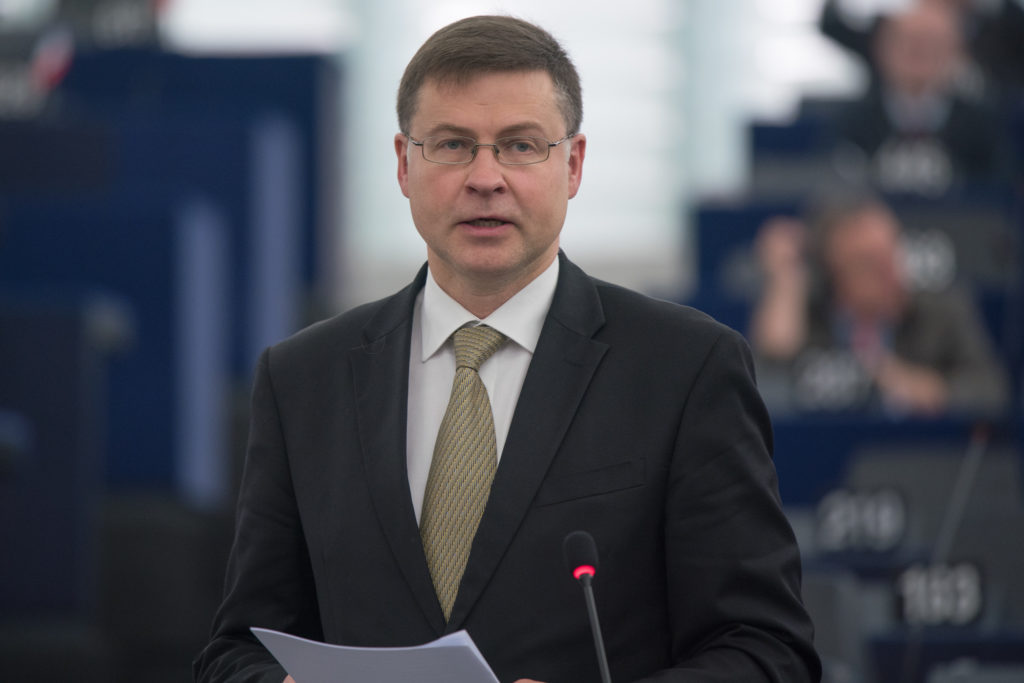Reuters | April 5, 2024 |

European Commission Executive Vice President Valdis Dombrovskis. Credit: European Parliament
New European Union rules that will ban products made using forced labour have raised the prospect of concluding a deal on critical minerals with the United States, EU trade chief Valdis Dombrovskis said on Friday.

Brussels has been keen to secure a deal with Washington that would allow critical minerals mined or processed in Europe to qualify for US clean vehicle tax breaks under the Inflation Reduction Act (IRA).
The United States and the EU failed to conclude an agreement at the two-day Trade and Technology Council that ended on Friday.
A key issue holding up an agreement is that of commitments to labour standards, including a US desire to be able to inspect individual sites to ensure they are being upheld.
Dombrovskis said the two sides were making progress in negotiations and that it was feasible for a deal to be completed this year, with the EU and the United States firmly aligned on labour rights and the elimination of forced labour.
“The new EU legislation on eliminating forced labour is providing us also with some new openings in this regard. The question is basically how to make it fit it into both our legal systems,” he said.
The EU is set to implement its law on forced labour this year.
The European Commission will lead investigations into alleged forced labour outside the EU. National authorities will investigate possible infractions in their own countries. Products will be withdrawn if the allegations are confirmed.
The minerals deal, likely to cover cobalt, graphite, lithium, manganese and nickel – which are critical to making economies more digital and green – might not be huge in monetary terms given the EU does not have extensive mining or processing.
However, an EU official said it was still important, as it would see the EU treated more like Canada and Mexico in terms of supply chains.
“This is about our status. It provides a signal to industry,” the official said.
(By Philip Blenkinsop; Editing by Emelia Sithole-Matarise)
No comments:
Post a Comment